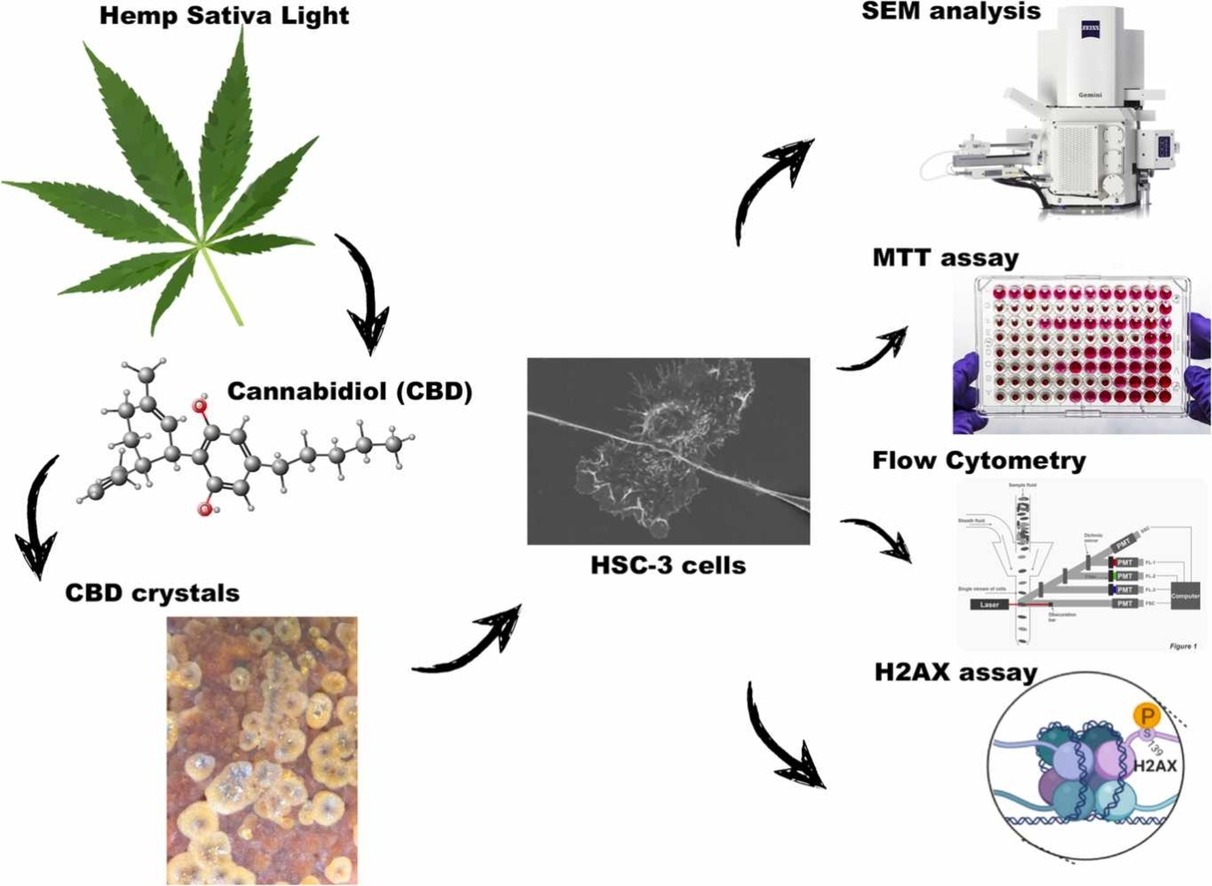A study set to be published in the journal Archives of Oral Biology in January 2025 explores the potential biological effects of cannabidiol (CBD) on oral squamous cell carcinoma cells.

Conducted by researchers from the University of Perugia in Italy, the study examines CBD as a possible adjuvant therapy in cancer treatment. The study was published online ahead of print by ScienceDirect.
Using in vitro models, the research tested the effects of CBD on human oral squamous cell carcinoma cells (HSC-3). The study utilized various concentrations of CBD, ranging from 1 µM to 100 µM, to assess cytotoxicity, cell viability, morphology, apoptosis, cell cycle arrest, and DNA damage. The researchers selected two key concentrations for analysis: 25 µM, identified as a toxic dose, and 6.25 µM, as a non-toxic dose.
“CBD caused a dose- and time-dependent reduction in viability of 64 %, 96 %, and 99 % with 25 µM, 50 µM and 100 µM, respectively, after 72 h (p < 0.001), cell cycle arrest in G0-G1 phase with increased apoptosis in particular at 72 h for 25 µM (p < 0.001), significant morphological alterations with 25 µM, still present even at 6.25 µM, and significantly increased cell damage considering a significant increase in the percentage of highly positive cells (5 phosphorylated γH2AX foci), which is around 29 % for 25 µM and 19 % for 6.25 µM after 24 h”, claim the study’s researchers.

The study concludes:
CBD inhibits oral cancer growth causing DNA damage. In general, induced cell cytotoxicity appears to be dose- and time-related. Doses of CBD ≥25 μM showed a high reduction in viability. CBD could possibly represent a new therapeutic molecule for its cytotoxic effects against oral squamous cell carcinoma. The mechanism involved in the suppressive effect caused by CBD needs further investigation.






